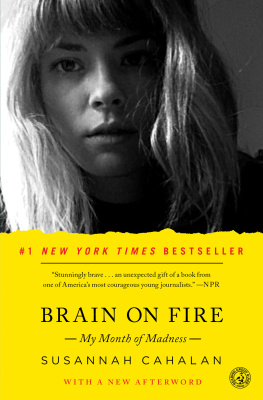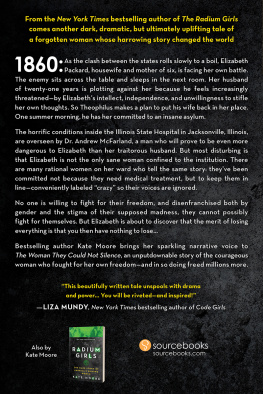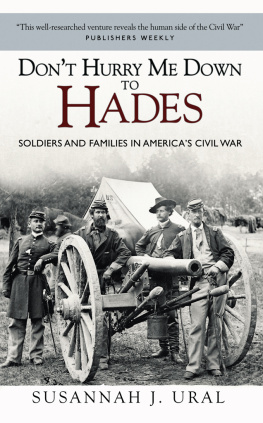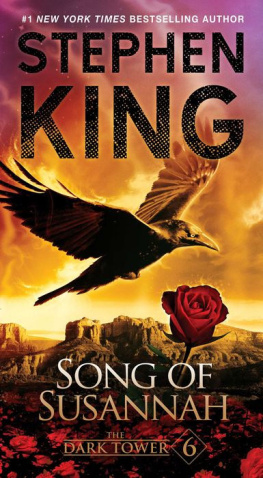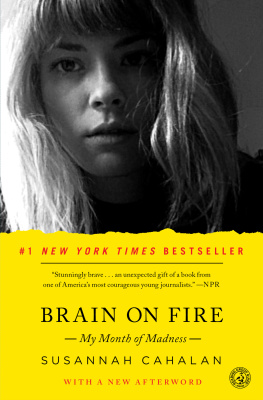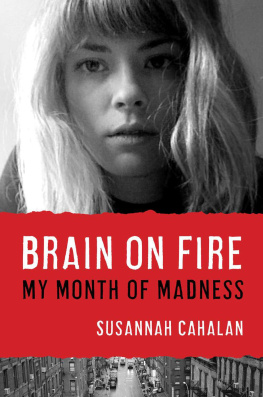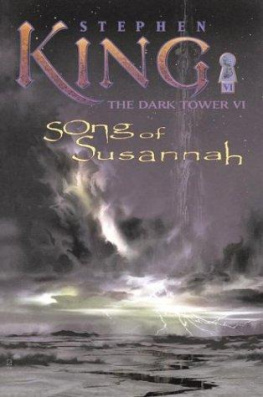Praise for Brain on Fire
The best reporters never stop asking questions, and Cahalan is no exception... The result is a kind of anti-memoir, an out-of-body personal account of a young womans fight to survive one of the cruelest diseases imaginable. And on every level, its remarkable.... Cahalan is nothing if not tenacious, and she perfectly tempers her brutal honesty with compassion and something like vulnerability. Its indisputable that Cahalan is a gifted reporter, and Brain on Fire is a stunningly brave book. But even more than that, shes a naturally talented prose stylistwhip-smart but always unpretentiousand its nearly impossible to stop reading her, even in the books most painful passages.... Brain on Fire comes from a place of intense pain and unthinkable isolation, but finds redemption in Cahalans unflagging, defiant toughness. Its an unexpected gift of a book from one of Americas most courageous young journalists.
NPR
A fascinating look at the disease thatif not for a nick-of-time diagnosiscould have cost this vibrant, vital young woman her life.
People
A young New York Post reporter contracts a rare brain disorder, recovers against the odds, then puts her restored mind to use investigating the diseases medical underpinnings.... Swift and haunting.
Scientific American
A dramatic and suspenseful book that draws you into her story and holds you there until the last page... I recommend it highly.
The Lancet
What is most impressive about Brain on Fire is that Cahalan has little recollection of her month of insanity.... Thanks partially to her talent as a journalist and to the fact that her parents kept journals, Cahalan was able to recapture her month, leaving no holes in the narrative.
The Daily Texan
This fascinating memoir by a young New York Post reporter... describes how she crossed the line between sanity and insanity.... Cahalan expertly weaves together her own story and relevant scientific information... compelling.
Booklist (starred review)
An intense, mesmerizing account of survival... Cahalans deft descriptions of her spooky hallucinations could be right out of a Poe terror tale.
BookForum
Compelling... a New York Post reporter recounts her medical nightmare.
Mental Floss
For the neurologist, I highly recommend this book on several grounds.... First, it is a well-told story, worth reading for the suspense and the dramatic cadence of events.... Second, it is a superb case study of a rare neurologic diagnosis; even experienced neurologists will find much to learn in it.... Third, and most important, it gives the neurologist insight into how a patient and her family experienced a complex illness, including the terrifying symptoms, the difficult pace of medical diagnosis, and the slow recovery. This story clearly contains lessons for all of us.
Cognitive and Behavioral Neurology
Focusing her journalistic toolbox on her story, Cahalan untangles the medical mystery surrounding her condition... A fast-paced and well-researched trek through a medical mystery to a hard-won recovery.
Publishers Weekly
New York Post reporter Cahalan recounts her struggle to understand an unremembered month lost to illness. Cobbled together from interviews, medical records, notebooks, journals and video footage, the author conjures the traumatic memories of her harrowing ordeal... A valiant attempt to recount a mostly forgotten experience.
Kirkus
With eagle-eyed precision and brutal honesty, Susannah Cahalan turns her journalistic gaze on herself as she bravely looks back on one of the most harrowing and unimaginable experiences one could ever face: the loss of mind, body, and self. Brain on Fire is a mesmerizing story of a promising young writers rapid descent into madness, due to a mysterious and debilitating disease. But thanks to a dedicated doctor and the undying love and devotion of her family and boyfriend, she returns to the world she left behind wiser, stronger, and very much alive.
Mira Bartk, New York Times bestselling author of The Memory Place
Brain on Fire is a swift, engrossing read and, unquestionably, an important book on both a human and a medical level. Cahalans elegantly written memoir of her dramatic descent into madness opens up discussion of the cutting-edge neuroscience behind a disease that may affect thousands of people around the world, and it offers powerful insight into the subjective workings of our minds.
Mehmet Oz, M.D., professor and vice chair, Department of Surgery, New York Presbyterian-Columbia Medical Center
Susannah Cahalan describes in chilling detail her descent into an inexplicable madness. So vivid and honest is Cahalans portrayal that the reader is drawn inexorably into her world as it disintegrates until she loses her very selfemotionally, physically and mentally... It is a story of everyday heroesher family, friends, and the determined doctors who steadfastly fought for her... Bravo to Ms. Cahalan who has been to hell and back and chronicles her journey so poignantly that we all may benefit.
Barbara Arrowsmith-Young, author of The Woman Who Changed Her Brain
Thank you for downloading this Simon & Schuster eBook.
Join our mailing list and get updates on new releases, deals, bonus content and other great books from Simon & Schuster.
C LICK H ERE T O S IGN U P
or visit us online to sign up at
eBookNews.SimonandSchuster.com
CONTENTS
Dedicated to those without a diagnosis
AUTHORS NOTE
The existence of forgetting has never been proved: we only know that some things do not come to our mind when we want them to.
FRIEDRICH NIETZSCHE
B ecause of the nature of my illness, and its effect on my brain, I remember only flashes of actual events, and brief but vivid hallucinations, from the months in which this story takes place. The vast majority of that time remains blank or capriciously hazy. Because I am physically incapable of remembering that time, writing this book has been an exercise in my comprehending what was lost. Using the skills Ive learned as a journalist, Ive made use of the evidence availablehundreds of interviews with doctors, nurses, friends, and family; thousands of pages of medical records; my fathers journal from this period; the hospital notebook that my divorced parents used to communicate with each other; snippets of video footage of me taken by hospital cameras during my stay; and notebooks upon notebooks of recollections, consultations, and impressionsto help me re-create this evasive past. I have changed some names and defining characteristics, but otherwise this is wholly a work of nonfiction, a blend of memoir and reportage.
Even still, I readily admit that Im an unreliable source. No matter how much research Ive done, the consciousness that defines me as a person wasnt present then. Plus, Im biased. Its my life, and so at the core of this story is the old problem of journalism, made a hundredfold messier. There are undoubtedly things that I have gotten wrong, mysteries I will never solve, and many moments left forgotten and unwritten. What is left, then, is a journalists inquiry into that deepest part of the selfpersonality, memory, identityin an attempt to pick up and understand the pieces left behind.
PREFACE
A t first, theres just darkness and silence.
Are my eyes open? Hello?
I cant tell if Im moving my mouth or if theres even anyone to ask. Its too dark to see. I blink once, twice, three times. There is a dull foreboding in the pit of my stomach. That, I recognize. My thoughts translate only slowly into language, as if emerging from a pot of molasses. Word by word the questions come: Where am I? Why does my scalp itch? Where is everyone? Then the world around me comes gradually into view, beginning as a pinhole, its diameter steadily expanding. Objects emerge from the murk and sharpen into focus. After a moment I recognize them: TV, curtain, bed.
Next page
